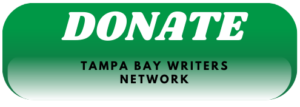In our canoe, Kelly and I paddled ahead of the others. We stroked heavily across the Bayboro Harbor and into the hot breath of lingering gasoline at the mouth of Salt Creek. Since I choose to sit in the back end of the vessel, I found myself periodically sprayed with a salty mist from Kelly’s careless thrusts–a savory mixture of seawater, runoff, and oil coated my lips and found its way to my palate.
While I wondered if hepatitis had a taste, I sat conflicted in soft wind and surf as we glided upstream. In between sun-bleached seawalls and gutted fishing boats, I held my expectations tight in my chest. All of us knew what to expect, but to consider it as a trip into nature stumped me. What is naturally denoted from a variety of plastics laminating over a stream of blue-green but nature’s war against the industry surrounding us? The water faded to dusty gray as we passed the complexes along the land. The water stunk.
What is this place, Salt Creek? As the name implies, there is indeed a slither of brackish water flowing outward into the harbor. From the streets and parks connected to Lake Maggiore, day drinkers and factory workers alike share the shoreline. What’s more hip than perceiving nature through the means of production–even through the end means? I engorged myself with life’s resilience through urbanization. Are we unable to escape nature’s takeover? Still, life flourishes through our neglect, through death and rebirth.
Musky humidity soaked my clothes under the mangrove’s shade past the boat graveyard as we approached our final destination. Together, the expedition left us condensed in the innards of a bacterial sausage casing filled with canoe, trash, vegetation, and a dead heron–wait, a dead heron?
A new addition, a Great Blue Heron rested between the roots and eroded concrete debris of the maritime foliage. Wilderness took over again, but within its urban influence.
The carcass knocked off the side of our metallic ships. As the majority of us had resorted to the screaming and laughing and squealing, I focused on the bird. The eyes were black. Although intact, maggots and flies crawled over the body and into the available orifices. Indicators of small fish picking away through the feather threshold tell the story of life thriving in an artificial pocket of nature.
We decided to return home in the middle of the thicket, death, and bacteria. After a closing statement our trip down the creek adjourned. I pushed away the dead bird and began to turn the canoe around. And within a matter of minutes, we left.
The sunlight driven from the seaward sky solicited the sensation of a snowy whiteout. We dredged the same path back full of sweat and stench, gliding within the glow of a sunset. After hours in the Tampa Bay, we were still reluctant of the unknown ahead.
